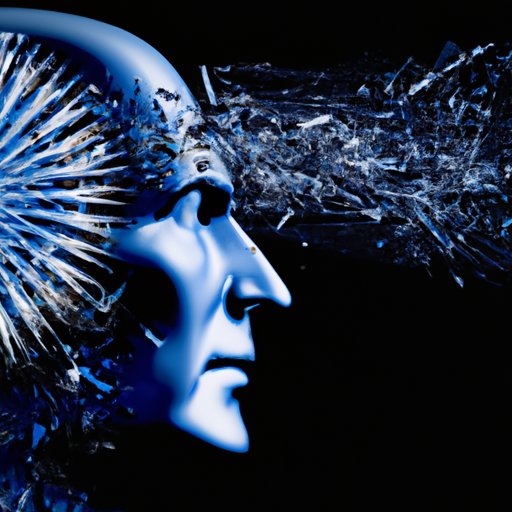
I. Introduction
Deja vu is a French term meaning “already seen” that people use to describe the feeling of having already experienced a situation or event that is happening in the present. Many people have experienced this eerie feeling, and it can be difficult to understand why or how it occurs. In this article, we will dive into the science, psychology, and mysteries behind deja vu to explore what exactly it is and how it happens.
II. Exploring the Science Behind Deja Vu: What Causes that Eerie Feeling?
When trying to understand the science behind deja vu, it is important to look at how our brain processes and stores memories. Some researchers suggest that during a deja vu event, the brain is sending information to the memory system twice, creating a false sense of familiarity. Specifically, it is hypothesized that the memory is encoded by the brain and then sent to the hippocampus, a region of the brain responsible for processing and consolidating new memories. When the same or similar information is encountered again, the hippocampus mistakenly retrieves the initial memory instead of creating a new one, leading to the sensation of familiarity.
Other studies have proposed that the phenomenon may occur due to a slight delay in the neurological processes of the brain, leading to two events becoming out of sync where the second event is experienced as being familiar.
III. Frequent Deja Vu Episodes? Here’s What You Can Do to Stop Them
Frequent deja vu episodes can be unsettling, and it may be possible to reduce their incidences by making certain lifestyle changes. Firstly, reducing stress and anxiety can alleviate the frequency of deja vu. Additionally, getting enough sleep, maintaining a healthy diet, and engaging in physical activities has been shown to help reduce the likelihood of experiencing deja vu events. However, if the episodes are persistent and begin to have a negative impact on one’s daily life, it may be a good idea to seek the help of a professional.
IV. Deja Vu: Is it a Sign of a Past Life or Just a Brain Glitch?
Some spiritual beliefs consider deja vu as a sign of a past life or a glimpse into the future. However, scientific evidence unequivocally disproves any such claim. While some people may experience intense emotions during a deja vu episode, it would be unwise to draw any conclusions about its supernatural origin.
Additionally, some researchers argue that suggestions of reincarnation or past lives may be the result of unconscious bias and prior experience, leading individuals to make associations that do not necessarily hold any truth.
V. The Different Types of Deja Vu: Which Ones Have You Experienced?
There are three main types of deja vu: predictive, associative, and biological. Predictive deja vu occurs when someone accurately foresees a future event, or a current event suddenly gains an unexpected significance. Associative deja vu happens when someone encounters a new place or event that feels familiar due to a past experience or similar environment. Lastly, biological deja vu is the sense of familiarity that can come from general stimulation in the environment, such as a familiar smell that triggers an old memory.
It’s important to recognize which type of deja vu one is experiencing to better understand the possible causes and triggers.
VI. Understanding Deja Vu: A Discussion of the Possible Psychological Theories Behind it
Freud’s theory of “cryptomnesia” suggests that deja vu is a result of unconscious plagiarism. Freud argued that sometimes people may forget or bury past events, only to retrieve them later and believe them to be new. Other psychological theories suggest that the feeling of familiarity is connected to the emotions associated with past experiences. For example, if an event or situation is particularly memorable, the subconscious may evoke sensations of familiarity even when the experience is entirely new.
VII. Deja Vu: A Uniquely Human Experience or Do Animals Experience it Too?
While there is no scientific consensus on whether animals experience deja vu, there is some anecdotal evidence that suggests they do. For instance, there are stories of birds seemingly remembering layouts of gardens despite never visiting the same gardens before. Additionally, some studies have shown that animals, including chimpanzees and rats, have exhibited behaviors that resemble deja vu.
However, given the differences in the neurological architecture between animals and humans, it is possible that the phenomena may differ significantly between species.
VIII. Conclusion
In summary, the phenomenon of deja vu remains somewhat of a mystery. While there are various neurological and psychological theories that attempt to explain its underpinnings, there is still much to learn. It is clear, however, that the feeling of familiarity is a universally human experience, and while scientists continue to uncover more about the nature of this phenomenon, we can manage deja vu episodes by living a healthy, stress-free life.





